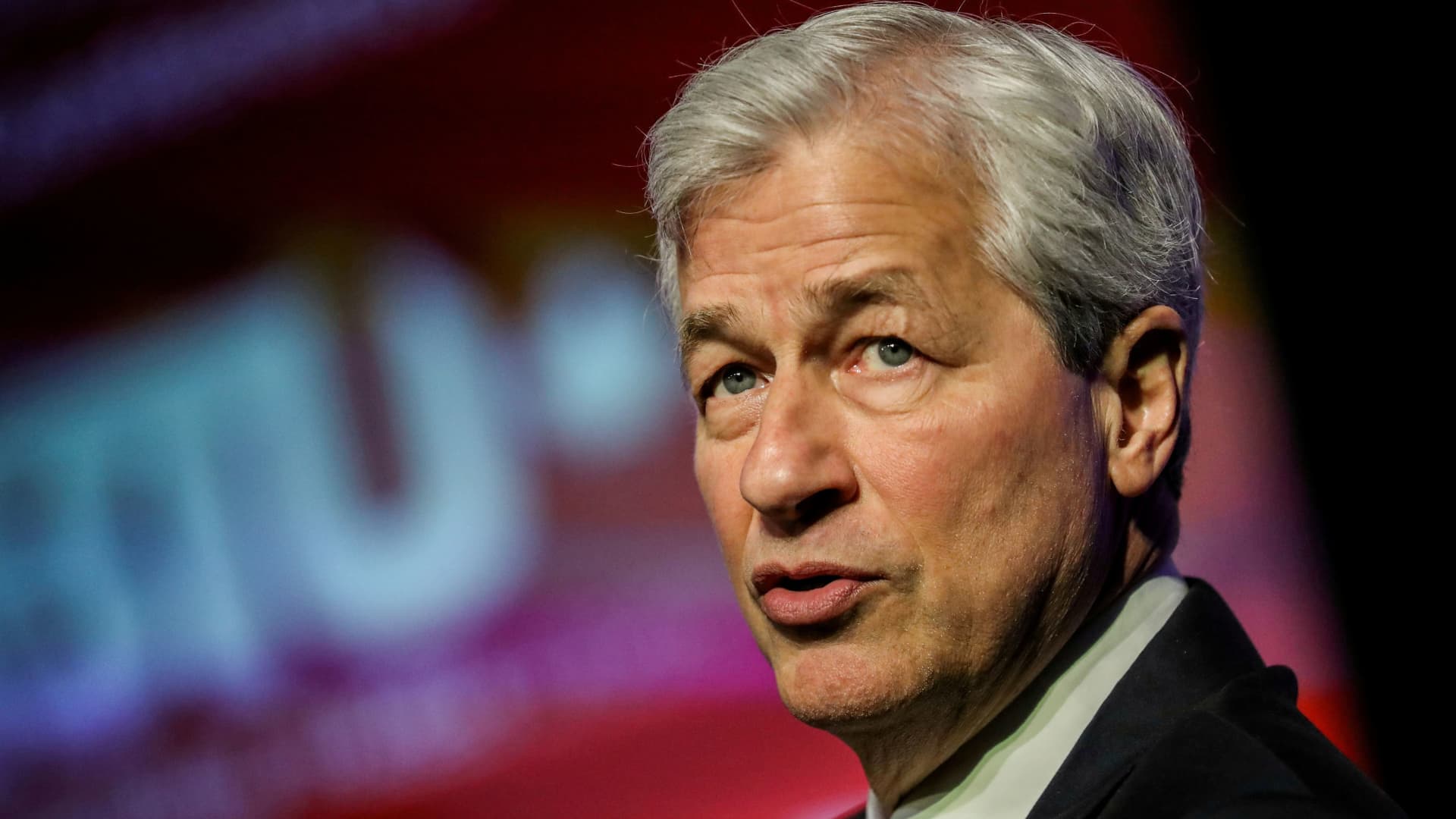Products You May Like
JPMorgan Chase said Thursday that second-quarter profit slumped as the bank built reserves for bad loans by $428 million.
Here are the numbers:
- Earnings: $2.76 a share vs the $2.88 per share estimate of analysts surveyed by Refinitiv.
- Revenue: $31.63 billion, vs. $31.95 billion estimate
Profit declined 28% from a year earlier to $8.65 billion, or $2.76 a share, driven largely by the reserve build, New York-based JPMorgan said in a statement. A year ago, the bank benefited from a reserve release of $3 billion.
Revenue edged up 1% higher to $31.63 billion, helped by the tailwind of higher interest rates.
But CEO Jamie Dimon said that the bank opted to “temporarily” suspend its share repurchases to help it reach regulatory capital requirements, a prospect feared by analysts earlier this year.
JPMorgan, the biggest U.S. bank by assets, is closely watched for clues on how the banking industry fared during a quarter marked by conflicting trends. On the one hand, unemployment levels remained low, meaning consumers and businesses should have little difficulty repaying loans. Rising interest rates and loan growth mean that banks’ core lending activity is becoming more profitable. And volatility in financial markets has been a boon to fixed income traders.
But analysts have begun slashing earnings estimates for the sector on concern about a looming recession, and most big bank stocks have sunk to 52-week lows in recent weeks. Revenue from capital markets activities and mortgages has fallen sharply, and firms could disclose fresh writedowns amid the broad decline in financial assets.
“In our global economy, we are dealing with two conflicting factors, operating on different timetables. The U.S. economy continues to grow and both the job market and consumer spending, and their ability to spend, remain healthy. But geopolitical tension, high inflation, waning consumer confidence, the uncertainty about how high rates have to go and the never-before-seen quantitative tightening and their effects on global liquidity, combined with the war in Ukraine and its harmful effect on global energy and food prices are very likely to have negative consequences on the global economy sometime down the road. We are prepared for whatever happens and will continue to serve clients even in the toughest of times.”
Importantly, a key tailwind the industry enjoyed a year ago — reserve releases as loans performed better than expected — could reverse as banks are forced to set aside money for potential defaults as the risk of recession rises.
Back in April, JPMorgan was first among the banks to begin setting aside funds for loan losses, booking a $902 million charge for building credit reserves in the quarter. That aligned with the more cautious outlook of CEO Jamie Dimon, who warned investors last month that an economic “hurricane” was on its way.
Beyond the results of the second quarter, analysts will be keen for any updates Dimon has on his economic forecast. Inflation has proven to be more stubborn than expected, with the U.S. consumer price index surging 9.1% in June alone.
As a result of all the conflicting data, investors should brace themselves for a wider-than-usual range of outcomes for the banks this quarter.
Some trends are expected to be widespread. Investment banking is under pressure thanks to the collapse in IPO activity and debt and equity issuance. In May, JPMorgan President Daniel Pinto said that banking fees were headed for a 45% decline. Markets revenue, however, could jump 20% thanks to volatility in commodities and interest rates.
Thanks in part to rising U.S. rates, JPMorgan said at the firm’s investor day in May that it could achieve a key target of 17% returns this year, earlier than expected. But the company was forced to keep its payout unchanged after the Federal Reserve’s annual stress test, while rivals including Goldman Sachs were able to boost their dividends last month.
Finally, bank analysts may ask if management can adjust expenses lower in reaction to the business environment.
Shares of JPMorgan have dropped 29% this year through Wednesday, worse than the 19% decline of the KBW Bank Index.
Morgan Stanley is scheduled to report results later Thursday, followed by Wells Fargo and Citigroup on Friday and Bank of America and Goldman on Monday.
This story is developing. Please check back for updates.
